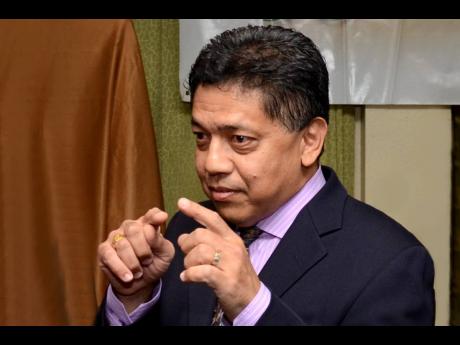Mixed reactions to minimum wage increase
President of the Jamaica Employers’ Federation (JEF), David Wan, says his organisation was anticipating a 25 per cent increase in the minimum wage, and not the 44 per cent announced by Prime Minister Andrew Holness in his Budget presentation on Thursday.
He indicated that small and medium-sized businesses will be most impacted by the increase.
“It would be nice if we could say let’s get the 44 per cent and nothing else will move... in an economy, it’s always sometimes unintended consequences. I am for the workers, it’s closer to a liveable wage, but there are always two sides to the coin,” he said in a Gleaner interview.
While extolling his Government’s commitment to providing minimum wage earners with a liveable wage, Holness announced the largest increase in their pay in 20 years.
Effective June 1, the national minimum wage will move from $9,000 per 40-hour workweek to $13,000. Additionally, industrial security guards will earn $14,000 per 40-hour workweek, up from $10,500.
But describing the Government’s increase as “very generous”, Wan noted that this might result in some small and medium-sized businesses, which provide most of the jobs in Jamaica, laying off or increasing the cost of their goods and services to account for the rise in their operational cost.
“It may cause some to have to let go of some portion of their staff because the bill is just too high,” the JEF boss insisted. “When the minimum wage goes up, businesses that employ people earning minimum wage are going to try to recover it with the pricing of their goods, so that’s the kind of domino effect it will have on consumers.”
However, Dr Adrian Stokes, economist and financial analyst, believes the increase in the minimum wage will have a positive impact on the economy, especially as it will result in an increase in the disposable income for minimum wage earners.
“It’s hard to imagine a material fallout in employment of these workers because of the wage increase. Most employers are enlightened and recognise that paying a liveable wage to their workers is better than having to recruit and train workers frequently due to high staff turnover arising from material dissatisfaction with wages,” he said.
Emphasising that high inflation over the last two years has done significant damage to workers who earn very close to the minimum wage, and so stabilising their purchasing power is important to growing the economy as they tend to consume a significant portion of their income.
Meanwhile, Elaine Duncan, president of the Jamaica Household Workers’ Union (JHWU) which represents 7,000 household workers in 13 chapters across the Island, told The Gleaner that she is very appreciative of the increase.
And even though it is $2,000 shy of the $15,000 Duncan had earlier stated would be an ideal figure, she noted that the increase is close enough to an adequate income.
“As you know, we have been moving away from the minimum wage to a liveable wage, so we are on our way to a liveable wage,” she contends.
Duncan said she is expecting the full cooperation of employers declaring that: “We all are in Jamaica and we know what the cost of living is, so I don’t think there will be any layoffs.”


